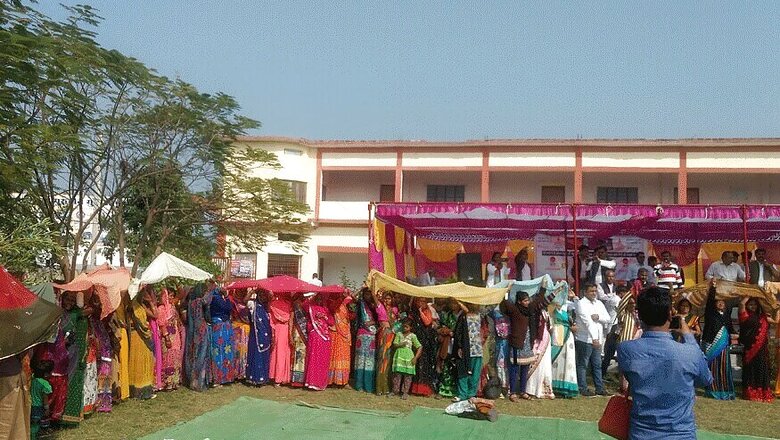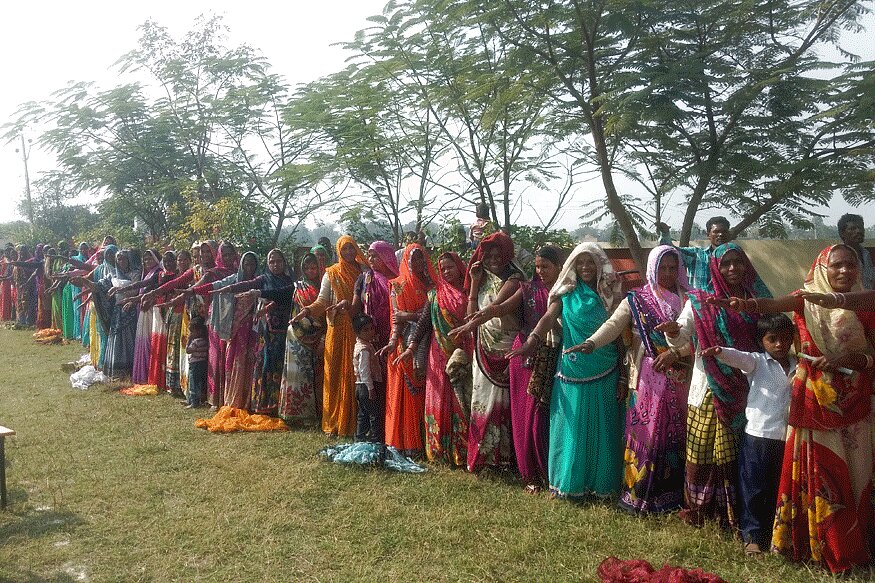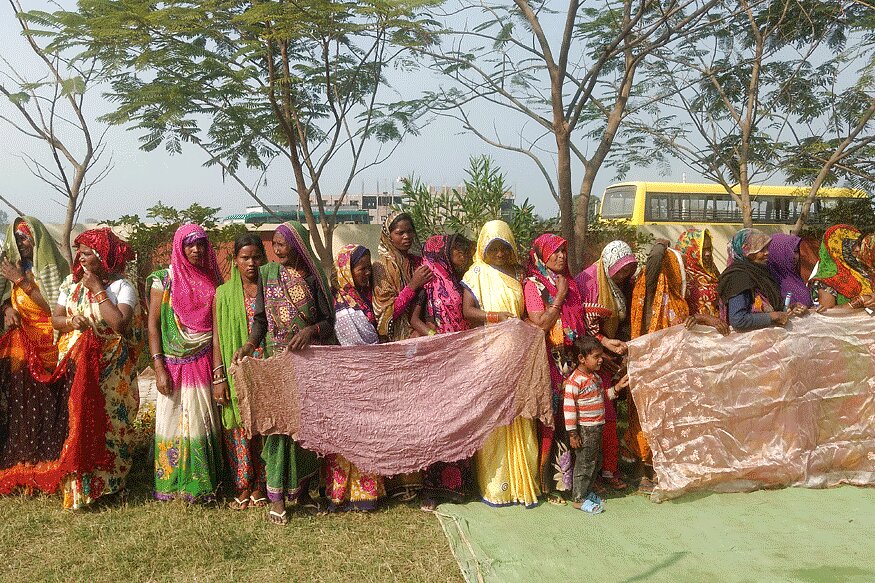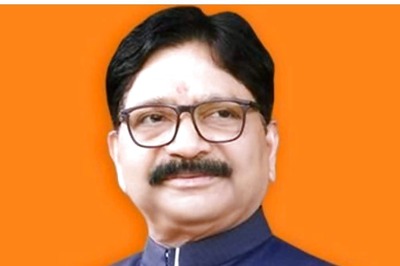
views
Lalitpur: The gathering looked joyous and colourful, but amidst the celebrations of the One Billion Rising event in one district of Bundelkhand in Uttar Pradesh, sat hundreds of angry adivasi women.
While the region goes to polls in barely 10 days, billboards and flags deck Bundelkhand's Lalitpur town in the colours and promises of various parties, the Saharia adivasi villages, said these women, still struggled for basics of survival — food, water, land — and are afraid their votes will be coerced.
Valentine's Day in Panari village of Bundelkhand's Lalitpur district was marked by the local chapter of One Billion Rising, the global movement to end violence against women, awarding adivasi women who had worked in their villages against violence against women, alcoholism, purdah, for the rights of widows.
Saharia women of all ages, from villages over 15 km away, gathered in the grounds of the Pahalvan Gurudeen Mahila Mahavidyalay, and were handed out shiny plaques for their leadership in their communities. However, as the afternoon drew to a close, despite the help given by the numerous NGOs with representatives clustered on the stage handing out awards, the women had to go back to homes where, they say, there is no water, no work, no roads and very little fertile land.

Saharia women of all ages, from villages over 15 km away, gathered in the grounds of the Pahalvan Gurudeen Mahila Mahavidyalay.
"We want someone who can look after the poor," said Sonam from Bamhori Kalan village, 12 km from Lalitpur town, clutching her maroon and gold plaque. “Someone who will give us water, land and fields to work in.”
"But we don't want to vote because of dabaaw (pressure)," she added as the rest of the women nod. There is worry that they'll have to vote for whoever bribes their husbands most successfully. Sheila from Budwad Gaon explains: "Where my husband goes I will go, jahan deep wahan jyoti." She, like the rest, is concerned that whoever gets the most alcohol to her husband might win those votes.
Who can look after the poor, however, the women give no hint. In the middle of the award ceremony, they all stood up to pledge to vote, and to get others to vote, but are keeping their cards close to their chest on who they prefer. One of the few men in the gathering, Sitaram, a fellow villager from Budwad, who now works with the NGO Sai Jyoti to make adivasi villages aware of their rights, piped up saying most of them will vote NOTA. The woman, however, remained quiet on the matter.
"Only the Brahmins, the Thakurs and the Lodhis (a landowning caste) get ration and food from anganwadis for pregnant women," Sonam said. "We have holes dug up for toilets but no actual latrines, paths have been dug up but no roads."

The Adivasi Women said they want someone who can look after the poor.
The stories seem to be of much futile digging, for absent toilets, roads, for wells and ponds under MGNREGA so badly designed they hold no water. There is no water to be had near their homes. Whichever the village, saharia women have to walk about 2 km every day to fetch water, on paths cannot cross that of the dominant castes.
"Our pradhan is a Lodhi. We asked him for work under MGNREGA, but he said there are no funds, work can only happen after elections," said Sandhya from Naya Gaon, roughly 16 km away from Lalitpur town. Many have repeatedly turned to the central jobs scheme for sustenance. However, Sheila who did 10 days of labour four years ago is yet to receive payment.
Lachchi from Kapasi gaon worked for one and half months some two years ago and has not got the money. The pradhan told her, she said, that the money had been paid to her account, but the bank denied receiving any.
In a country being relentlessly pushed to embracing digital and cashless transactions, saharia women are extremely unhappy with the way their local banks work. Since most village women are illiterate, they told News18, banks don't entertain most saharia villagers without self-styled agent, whether to withdraw the NREGA payment or the state pension. However, these agents, take bulk of the money and leave a few hundred with them.
With no available work, very little tillable land and thekedars [contractors] who treat them like bonded labour, many villagers have fanned out to Delhi, Agra, Indore, Bhopal for jobs. In Lalitpur, meanwhile, the refrain for adivasis is jal, jameen, kheti, even though they're tight-lipped on their best bet.




















Comments
0 comment